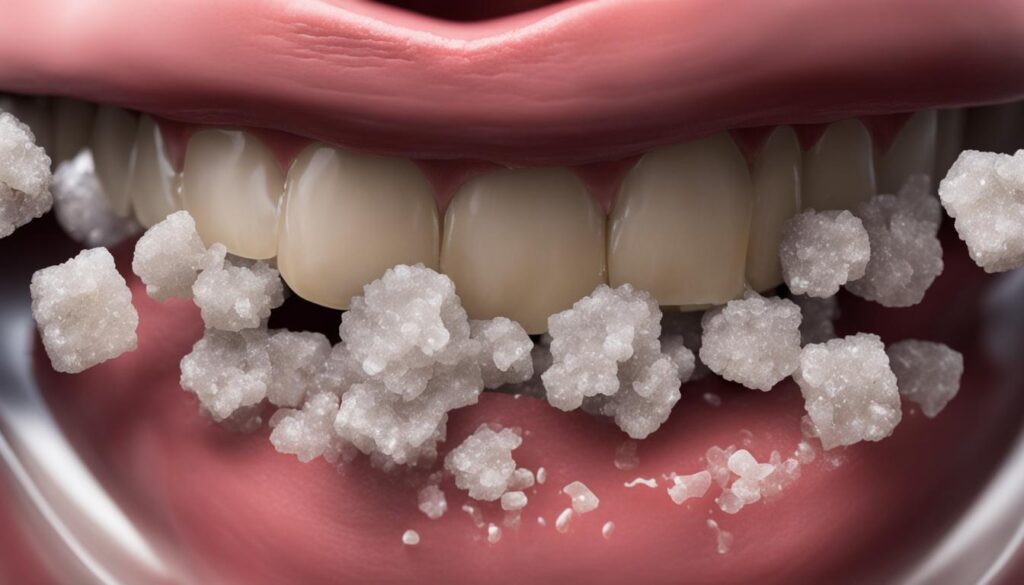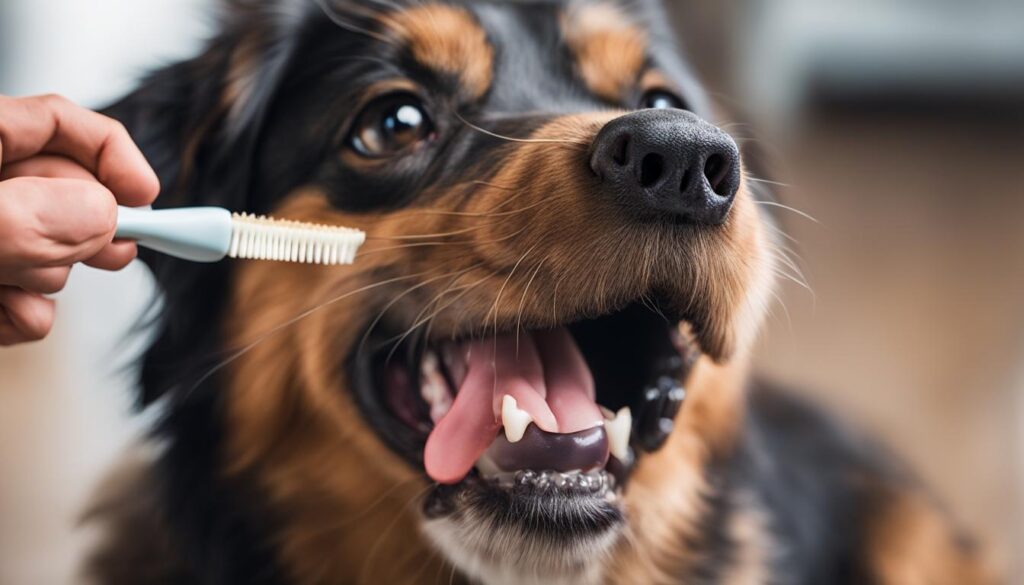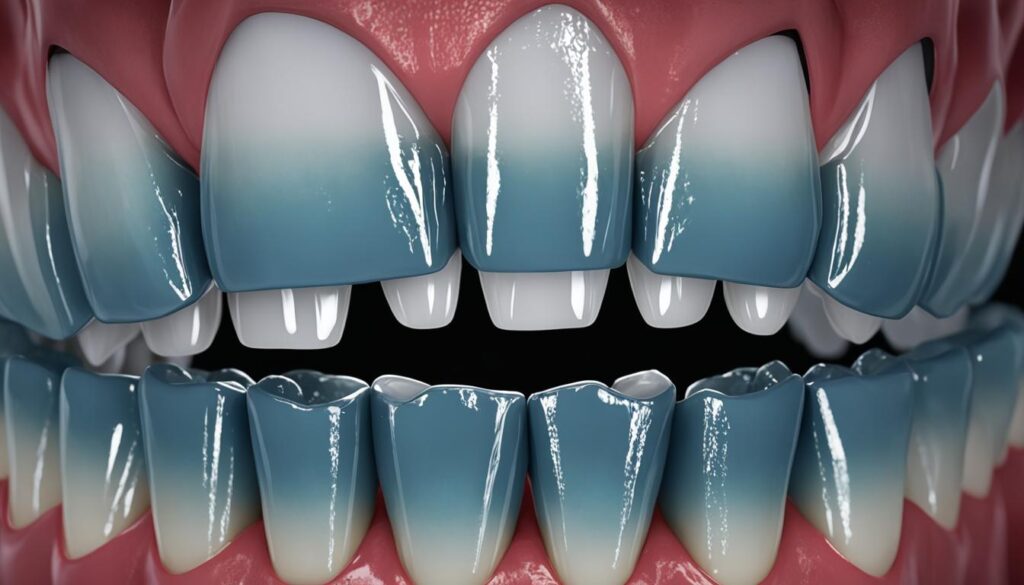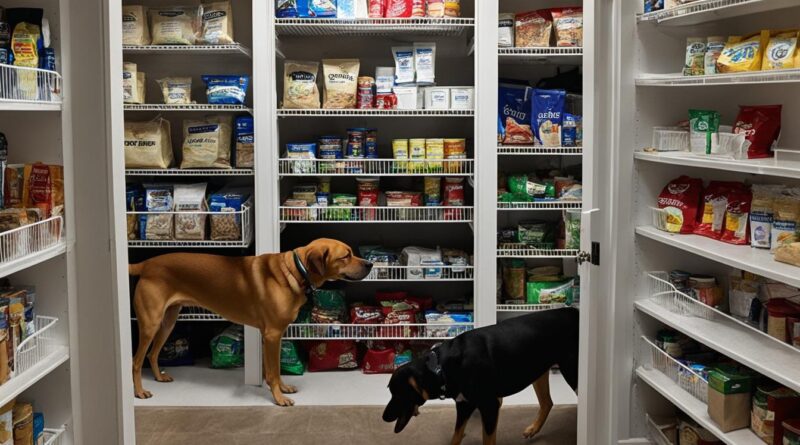Is Erythritol Safe for Dogs? Vet Insights Revealed.
Are you wondering if erythritol is safe for your furry friend? As a responsible pet owner, it’s essential to know what is safe and what can potentially harm your dog. In this article, we’ll explore the safety of erythritol for dogs and provide insights from veterinarians. So, let’s dive in and find out the truth about erythritol and its impact on canine health!
Erythritol, a sugar alcohol commonly used as a sweetener in human foods, has gained popularity in recent years. It is naturally found in fruits like grapes and melons and has a similar taste to sugar but with fewer calories. While erythritol is generally safe for humans, the same cannot be said for our four-legged friends.
Key Takeaways:
- Erythritol is commonly used as a sweetener in human foods but might not be safe for dogs.
- Consult with your veterinarian before introducing any new food or ingredient into your dog’s diet.
- Erythritol can cause digestive upset and potentially lead to more severe health issues in dogs.
- Monitor your dog closely for any signs of erythritol poisoning, such as vomiting, diarrhea, or increased thirst.
- Stick to canine-approved treats and foods to ensure your dog’s overall health and well-being.
The Bacteriostatic Effect of Erythritol on Canine Periodontal Disease-Related Bacteria
In a recent study, the effects of erythritol on canine periodontal disease-related pathogenic bacteria were investigated using in vitro and in vivo methods. The study aimed to evaluate erythritol’s potential as a bacteriostatic agent against periodontal disease in canines.
In vitro experiments demonstrated that erythritol significantly suppressed the growth of Porphyromonas gulae, a bacteria commonly associated with canine periodontal disease. These findings indicate that erythritol has antimicrobial effects against periodontal disease-related bacteria in canines, similar to its effects in humans.
In an intervention trial, an external gel preparation containing 5% erythritol was used. The results showed a significant decrease in the occurrence of several canine periodontal disease-related bacteria in periodontal lesions after the application of the gel. This further supports the bacteriostatic properties of erythritol in combatting periodontal disease in dogs.
Erythritol’s ability to inhibit the growth of periodontal disease-related bacteria suggests its potential use as an effective ingredient in oral care products for canines. By incorporating erythritol into oral hygiene routines, dog owners can contribute to the improvement of their pets’ oral health.
Erythritol’s Effects on Canine Periodontal Disease-Related Bacteria
| Study Type | Findings |
|---|---|
| In vitro | Erythritol significantly suppressed the growth of Porphyromonas gulae, a bacteria associated with canine periodontal disease. |
| In vivo intervention trial | The use of an external gel containing 5% erythritol resulted in a significant decrease in the occurrence of various canine periodontal disease-related bacteria in periodontal lesions. |
These research findings highlight the potential of erythritol as a bacteriostatic agent against periodontal disease-related bacteria in canines. By incorporating erythritol into their dogs’ oral care routine, pet owners can take proactive measures to support good oral health and prevent periodontal disease.

Mechanical Plaque Reduction – Toothbrushing and Dental Scaling
When it comes to maintaining your dog’s oral health, toothbrushing is the most effective method for daily plaque control. It is recommended to brush your dog’s teeth daily or every other day to promote optimal dental hygiene. To make toothbrushing a more enjoyable experience for your furry friend, using toothpaste with attractive flavors and non-cariogenic properties, such as those containing erythritol, can improve the taste and acceptance of the toothbrushing routine.
Dental scaling is a professional periodontal procedure that plays a crucial role in maintaining your dog’s oral hygiene. This procedure involves the removal of supragingival (above the gum line) or subgingival (below the gum line) dental plaque and calculus. Dental scaling can be performed manually with scalers and curettes or mechanically with ultrasonic instrumentation. To ensure comprehensive periodontal care, dental scaling is often combined with root planning, polishing, and sulcular lavage to effectively reduce periodontal microorganisms and promote better oral health.
| Advantages of Toothbrushing | Benefits of Dental Scaling |
|---|---|
|
|
Regular toothbrushing and dental scaling are essential components of your dog’s oral care routine. Incorporating these mechanical plaque reduction methods can significantly contribute to maintaining your dog’s oral health and preventing the development of periodontal disease.

Takeaway:
Prioritizing toothbrushing and professional dental scaling for your dog can help control plaque and promote optimal oral hygiene. By establishing a regular oral care routine and incorporating these mechanical plaque reduction methods, you can support your furry friend’s dental health and overall well-being.
Chemical Plaque Reduction Products
Chemical plaque reduction products can be used as adjunctive measures to toothbrushing for oral health in dogs. These products contain various ingredients that provide antimicrobial and anti-inflammatory effects to combat dental plaque and improve overall oral hygiene. Let’s take a closer look at some of these effective chemical plaque reduction products:
Chlorhexidine for Dogs
Chlorhexidine is a widely used antimicrobial agent that can be found in oral rinses designed for dogs. It has been extensively studied and shown to reduce dental plaque and gingivitis in humans, and its benefits extend to the oral health of our furry friends as well. Chlorhexidine effectively targets harmful bacteria and helps control plaque formation, ultimately contributing to improved oral hygiene in dogs.
Zinc-containing Products for Dental Plaque Reduction
Zinc-containing products, often combined with vitamin C, offer a unique approach to dental plaque reduction. These products have antimicrobial activity against oral pathogens and effectively reduce calculus formation and halitosis. By incorporating zinc-containing products into your dog’s oral care routine, you can help prevent plaque buildup and support their oral health.
Xylitol and Erythritol for Oral Health
Xylitol and erythritol are polyols that possess non-cariogenic properties and can inhibit the growth of bacteria associated with oral health problems. These natural sweeteners are often used in dental products for humans and have similar benefits for dogs. Incorporating xylitol or erythritol-containing products into your dog’s oral care routine can contribute to maintaining their oral health and reducing the risk of dental issues.
Triclosan for Dogs
Triclosan is a bisphenol compound with antimicrobial and anti-inflammatory properties. While primarily studied for its use in human oral care products, triclosan may have potential applications in oral care products for dogs. Its antimicrobial activity helps combat harmful bacteria and supports oral hygiene in our canine companions.
Nisin-biogel for Oral Biofilm
Nisin-biogel is a product that utilizes the antimicrobial activity of nisin to target oral biofilm. Originally used in humans for tooth air polishing powders during professional prophylaxis, nisin-biogel may have similar applications for dogs. By incorporating this product into your dog’s oral care routine, you can help combat oral biofilm and maintain their oral health.
Antimicrobial Activity of Triclosan
Triclosan, as mentioned earlier, possesses antimicrobial activity. It effectively targets bacteria and helps control their growth in the oral cavity. The antimicrobial properties of triclosan contribute to plaque reduction and improve overall oral hygiene in dogs.
When selecting chemical plaque reduction products for your dog, it’s important to consider their specific oral health needs and consult with your veterinarian for recommendations. By incorporating these products into your dog’s oral care routine, along with regular toothbrushing and professional dental scaling, you can support their oral health and prevent dental problems in the long run.
Comparison of Chemical Plaque Reduction Products
| Product | Key Benefits |
|---|---|
| Chlorhexidine | Reduces dental plaque and gingivitis |
| Zinc-containing Products | Reduces calculus formation and halitosis |
| Xylitol and Erythritol | Inhibits growth of bacteria associated with oral health problems |
| Triclosan | Antimicrobial and anti-inflammatory effects |
| Nisin-biogel | Targets and combats oral biofilm |

Implementing chemical plaque reduction products as part of your dog’s oral care routine can significantly contribute to their overall oral health. Always consult with your veterinarian to ensure the products you choose are safe and suitable for your dog’s specific needs.
Erythritol’s Positive Impact on Oral Biofilm
Erythritol, a key ingredient in oral care products, offers numerous benefits for maintaining optimal oral hygiene. Not only does it enhance the taste and perception of these products due to its natural sweetness, but it also plays a significant role in oral biofilm control. As a polyol, erythritol possesses non-cariogenic properties and inhibits the growth of harmful bacteria within the oral cavity.
In vitro studies have demonstrated that erythritol has a profound impact on bacterial gene expression, bacterial metabolism, and the accumulation of extracellular matrices within oral biofilms. It penetrates these biofilms effectively and enhances the effects of antimicrobial compounds, such as chlorhexidine, to further combat plaque and control oral bacteria.
Furthermore, in vivo studies have shown that incorporating erythritol into oral care products leads to a reduction in dental plaque, delays the development of caries, and lowers the overall occurrence of caries. The positive effect of erythritol on oral biofilm makes it a valuable addition to toothpaste, mouthwash, and even professional prophylaxis powders.
Notably, erythritol has also made its way into oral care products designed specifically for pets, such as dog chewing sticks. The advantages it offers for canine oral health mirror those for humans, making it a safe and effective ingredient for animal care products.
The Benefits of Erythritol in Oral Care
- Improves taste and perception of oral care products
- Possesses non-cariogenic properties
- Inhibits the growth of harmful oral bacteria
- Penetrates oral biofilms effectively
- Enhances the effects of antimicrobial compounds
- Reduces dental plaque
- Delays the development of caries
- Reduces the occurrence of caries
- Safe for use in both human and animal care products
Dental Plaque Reduction with Erythritol
| Study | Findings |
|---|---|
| In vitro study on oral biofilm | Erythritol impacts bacterial gene expression, metabolism, and matrix accumulation within biofilms. |
| In vivo study on dental plaque reduction | Erythritol reduces dental plaque, delays the development of caries, and lowers the overall occurrence of caries. |
| Erythritol in oral care products | Improves taste, inhibits harmful bacterial growth, and penetrates biofilms effectively. |
Conclusion
Erythritol offers numerous benefits for dogs’ oral health, making it an excellent choice as an ingredient in oral care products. Research has shown that erythritol has bacteriostatic effects against periodontal disease-related bacteria in canines. By inhibiting the growth of these bacteria, erythritol helps prevent and improve periodontal disease, a common issue in dogs.
In addition to its bacteriostatic properties, erythritol has non-cariogenic properties, meaning it does not contribute to tooth decay. This makes it a suitable component of oral care products for dogs, as it can reduce the growth of bacteria associated with pathogenic conditions in the oral cavity.
Alongside mechanical plaque reduction methods like toothbrushing and dental scaling, chemical plaque reduction products can further support canine oral health. Erythritol, when used in toothpaste, mouthwash, and professional prophylaxis powders, has a positive impact on oral biofilm and helps reduce dental plaque. Combined with other polyols and antimicrobial compounds like chlorhexidine, erythritol can contribute to the overall improvement of dogs’ oral health.
By utilizing erythritol in oral care products, pet owners can effectively control oral biofilm, reduce plaque buildup, and promote better oral health in their furry friends. Remember, a healthy mouth leads to a healthier and happier dog!
FAQ
Is erythritol safe for dogs?
Yes, erythritol is safe for dogs. It has been widely used in oral care products for dogs to improve their oral health.
Can dogs eat erythritol?
While erythritol is safe for dogs, it is best to use it in oral care products rather than as a food ingredient.
Are there any dangers of erythritol for dogs?
No, erythritol is not known to have any specific dangers or side effects for dogs when used in appropriate amounts.
What are the benefits of erythritol for dogs?
Erythritol has bacteriostatic effects against periodontal disease-related bacteria in dogs, helping to prevent and improve periodontal disease.
Does erythritol have any side effects in dogs?
Erythritol does not have any known side effects in dogs when used in oral care products.
Is erythritol used in dog food?
While erythritol can be used as a sweetener in some dog food products, it is most commonly found in oral care products for dogs.
What is erythritol’s impact on canine oral health?
Erythritol has been shown to reduce dental plaque, delay the development of caries, and overall reduce the occurrence of caries in dogs.
How does erythritol improve oral health in dogs?
Erythritol, as a polyol, has non-cariogenic properties and can reduce the growth of bacteria associated with pathogenic conditions in the oral cavity.
What are the most effective methods for daily plaque control in dogs?
Toothbrushing is the most effective method for daily plaque control in dogs. It is recommended to brush dogs’ teeth daily or every other day for improved plaque control.
Are there any chemical plaque reduction products that can be used for dogs?
Yes, chemical plaque reduction products such as chlorhexidine and zinc compounds can be used as adjunctive measures to toothbrushing for oral health in dogs.
How often should I brush my dog’s teeth for optimal plaque control?
It is recommended to brush your dog’s teeth daily or every other day for optimal plaque control.

